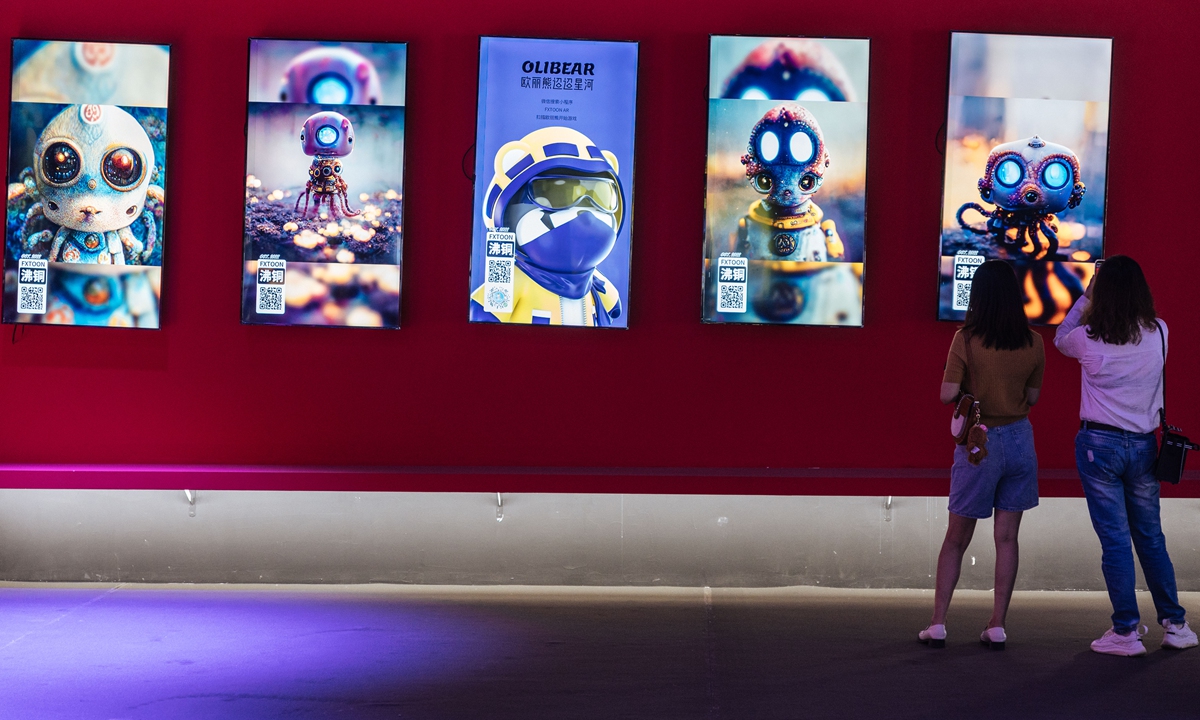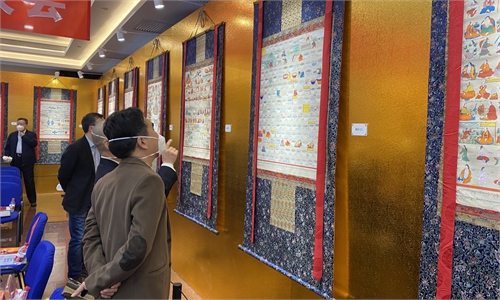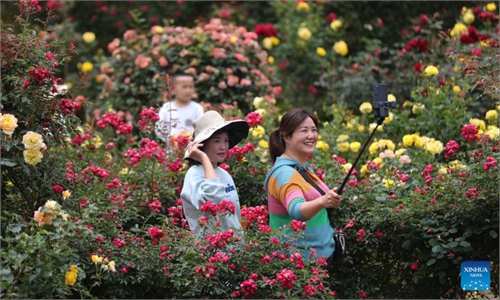ARTS / CULTURE & LEISURE
Trends: Sci-fi TV series and movies have great potential in China

China Sci-Fi Convention is being held on May 29 and 30 in Beijing. Photo: Li Hao/GT
The author of the Three Body Problem, Chinese novelist Liu Cixin, said at Monday's China Sci-Fi Convention that sci-fi TV series and movies have great potential and a bright future ahead in China."The creation of sci-fi literature develops the imagination on the basis of science and allows us to look forward to various possibilities in the future," Liu said, noting that Chinese sci-fi literature doesn't follow the path of Western works, instead it has its own distinctive style.
Although Chinese sci-fi literature has received widespread attention, it is still in its infancy. Both the number of readers and the number of influential writers and works are still very small.
Regarding the influence of artificial intelligence in the development of sci-fi, Liu said he believes that technology is a good thing that allows everyone to have more opportunities to create a better future. The styles of sci-fi TV series and movies also need to be diverse to comply with the diverse tastes of audiences.
China News Service
A Chinese research team recently recreated the world's earliest composite terracotta roof based on more than 5,000 pieces of terracotta fragments from the early Longshan Culture (2400BC-2200BC) that were unearthed from the Qiaocun site in Northwest China's Gansu Province.
The recreation was achieved through quantitative analysis, three-dimensional modeling and computer simulations run by a joint team from Peking University and the Gansu Provincial Institute of Cultural Relics and Archaeology.
Though the earliest terracotta tiles in the world appeared in the Greece, composite terracotta tiles, composed of tube tiles and plate tiles, have been mainly found on the Loess Plateau in China. During the Western Zhou Dynasty (1046BC-771BC), the techniques to make these composite terracotta tiles advanced greatly and spread east to places like Japan and the Korean Peninsula, contributing to the development of human architectural civilization.
Guangming Daily
Classical music often appears to be "high up in the sky" for many people, but this kind of music comes alive through the explanations of German pianist Andreas Stier. Stier started his channel on YouTube and China's video platform Bilibili in 2020, explaining Western classical music in very fluent Chinese.
"Although the cultural backgrounds of China and the West are very different and there are some misunderstandings, art or music provides us with an opportunity to get closer to each other. This is our common culture," he said.
China.com


